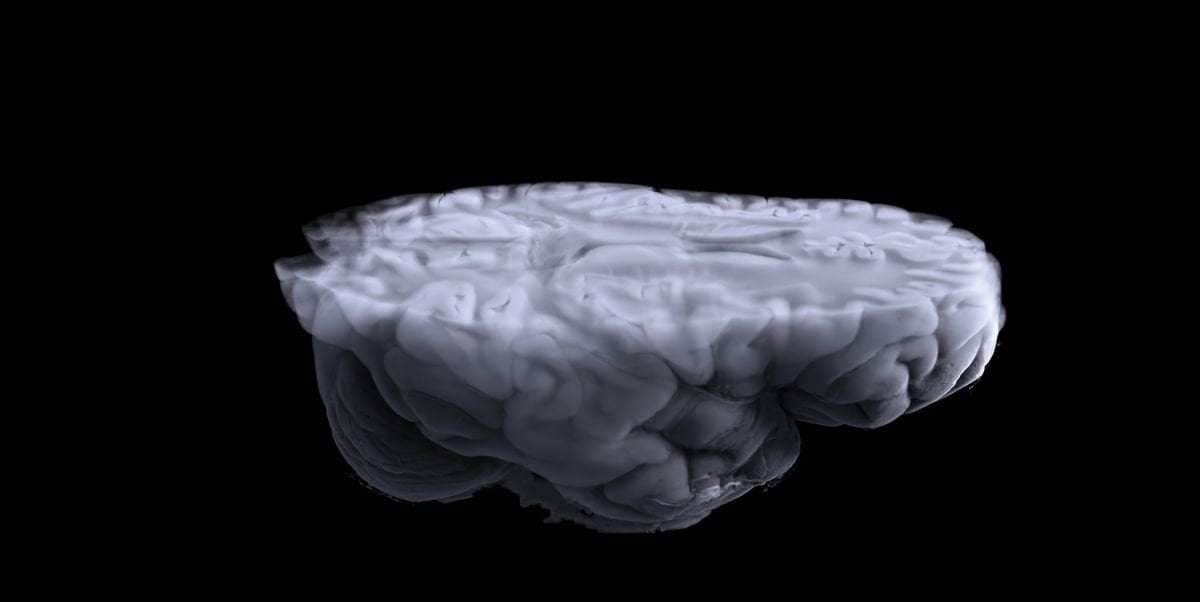The size of the human brain ebbs and flows over the course of millennia, but a new study has shown an uptick in size between the brains of people born from the 1930s and those born in the 1970s.
This increased brain size—noticeable in volume, surface areas, and structures such as the hippocampus—could be attributed to better health outcomes and educational opportunities.
Increased brain size could also help explain why the incidence of dementia is decreasing, as bigger brains offer a buffer against “late-life effects” of brain diseases, such as Alzheimer’s.
The human brain is one of the most impressive organs in the animal kingdom. By far the most advanced cerebrum nature has ever produced (at least, as far as we know), the brain consistently confounds scientists who are trying to understand its many mysteries—and those mysteries can even extend to its very size.
Over the course of human biology—measured in millions of years—some scientists have put forward the idea that the human brain is actually shrinking, fueled in part by the knowledge that human bodies have shrunk in size. Some research even posits that a warming world could be an engine behind brain change.
Related Story These Ancient Brains Are Untouched by Time
However, new research from University of California Davis suggests that on smaller timescales—that is, biological changes between generations—the brain’s volume has actually increased by 6.6 percent. While that may not seem like a lot (the brain is essentially the size of two clenched fists, after all), it could be a useful biological bulwark against dementia. The results of this study were published this week in the journal JAMA Neurology .
“The decade someone is born appears to impact brain size and potentially long-term brain health,” UC Davis’s Charles DeCarli, first author of the study, said in a press statement. “Genetics plays a major role in determining brain size, but our findings indicate external influences—such as health, social, cultural and educational factors—may also play a role.”
This research pulls data from a community-based study first launched back in 1948 and continuing to this day. Though the MRIs themselves were conducted between 1999 and 2019, this long-term dataset includes second and even third-generation participants. This allowed DeCarli’s team to analyze changes in brain structures over time, particularly for those born in the 1930s until the 1970s.
However, the study is limited. For example, though it analyzes people between the ages of 30 and 62, the average age at the time of MRI was 57. The dataset also features a dearth of non-white participants, so it’s not an excellent indicator of the U.S. population as a whole. But it does show something—drastic changes happening in the human brain.
Related Story Scientists Set to Break the Blood-Brain Barrier
As mentioned, the average volume of the brain was found to have increased 6.6 percent, but the cortical surface area showed an overall 15 percent increase in volume when comparing participants from the 1970s to those in the 1930s. In addition, structures of the brain—such as white matter, gray matter, and the hippocampus—also increased in size over the decades. The researchers attribute this growing trend to improved “early life environmental influences,” including improved health, social-cultural changes, and education factors.
And while 7 million Americans live with brain diseases like Alzheimer’s, the incidences of those diseases overall have decreased by 20 percent since the 1970s. DeCarli’s research could provide evidence that an increased brain size might be part of the reason why.
“Larger brain structures like those observed in our study may reflect improved brain development and improved brain health,” DeCarli said in a press statement. “A larger brain structure represents a larger brain reserve and may buffer the late-life effects of age-related brain diseases like Alzheimer’s and related dementias.”
Once again, the brain shows the (increased) capacity to surprise.

Substantial_Motor_87 on March 31st, 2024 at 02:25 UTC »
More room to store memes
cybercuzco on March 31st, 2024 at 02:21 UTC »
Brain says its the bestest brain ever
fanau on March 31st, 2024 at 01:43 UTC »
Yea human brains have expanded by 6.6 percent - I had to read it twice because I was sure it must say shrunk.